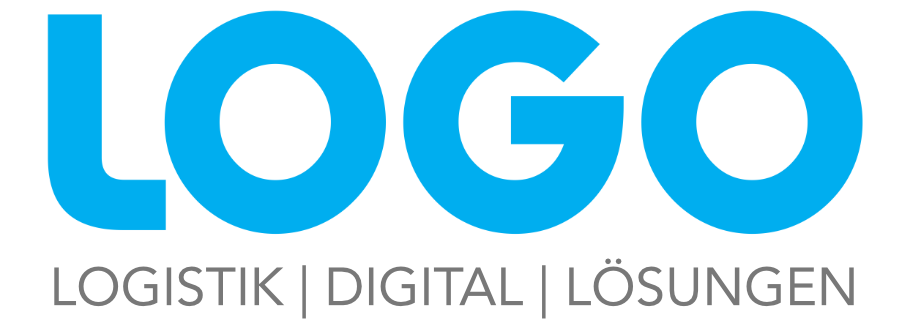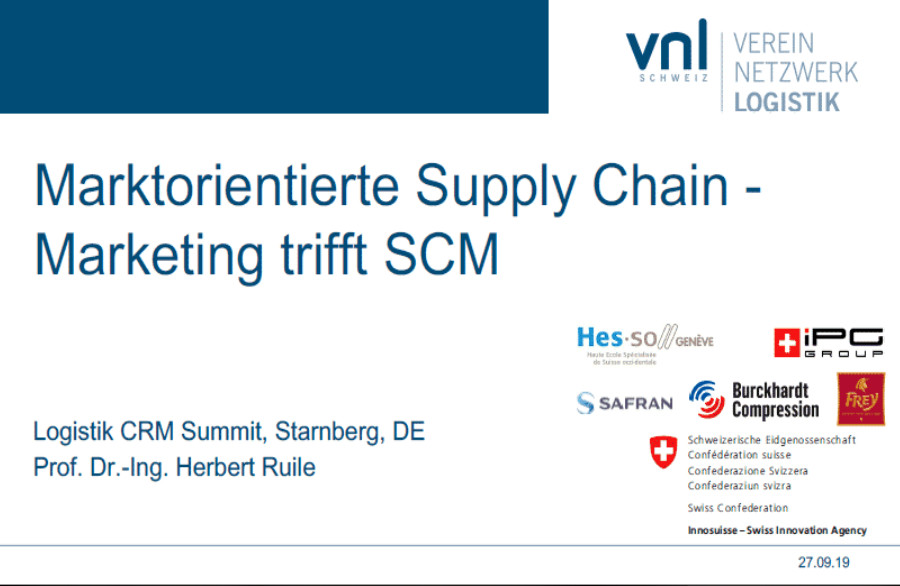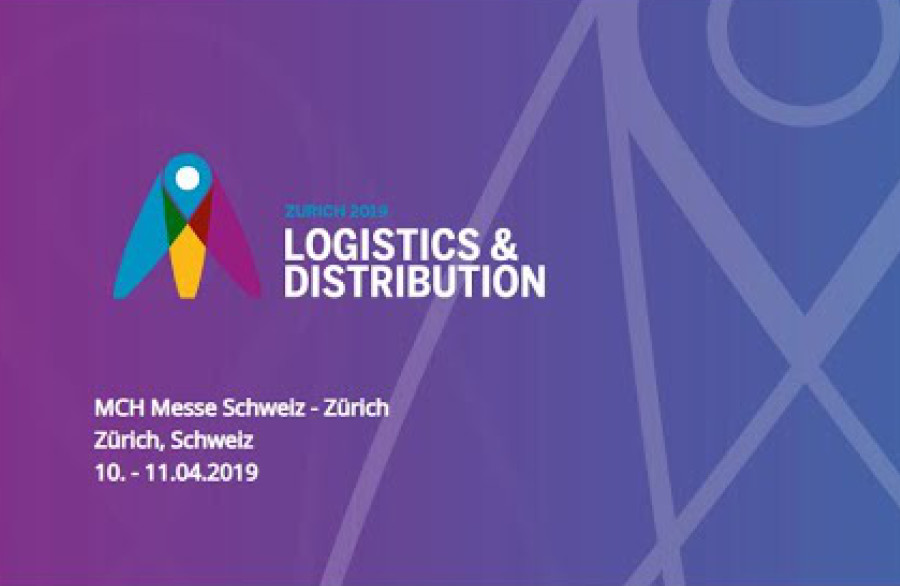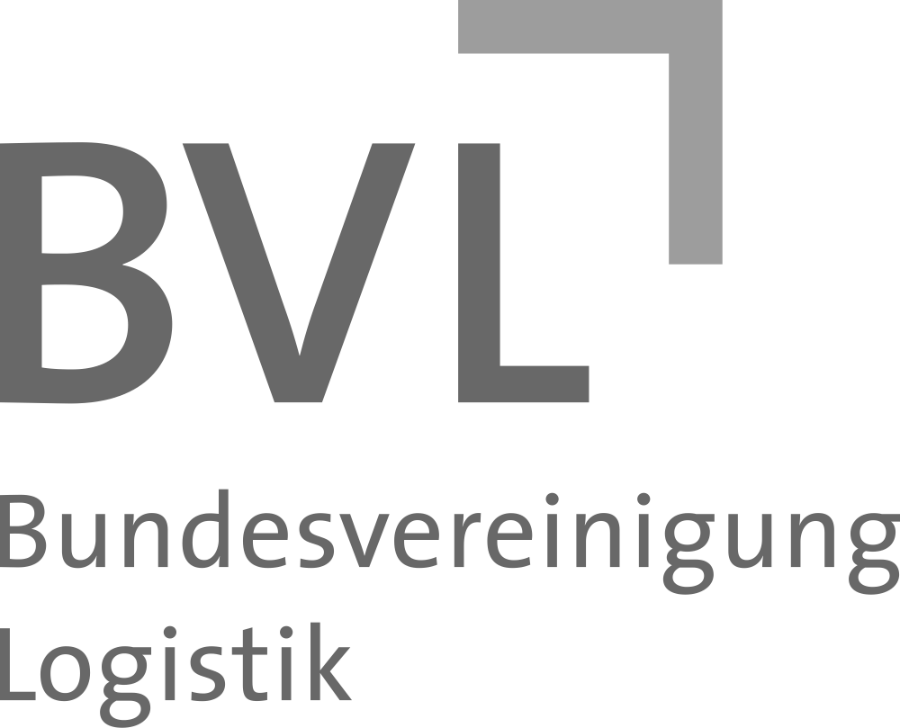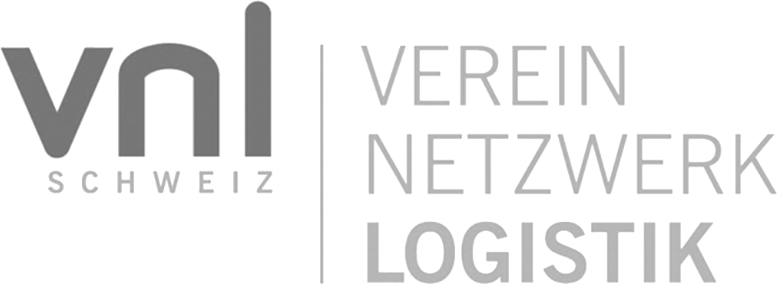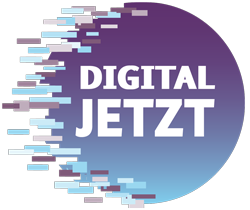“Supply Chain Meets Marketing”
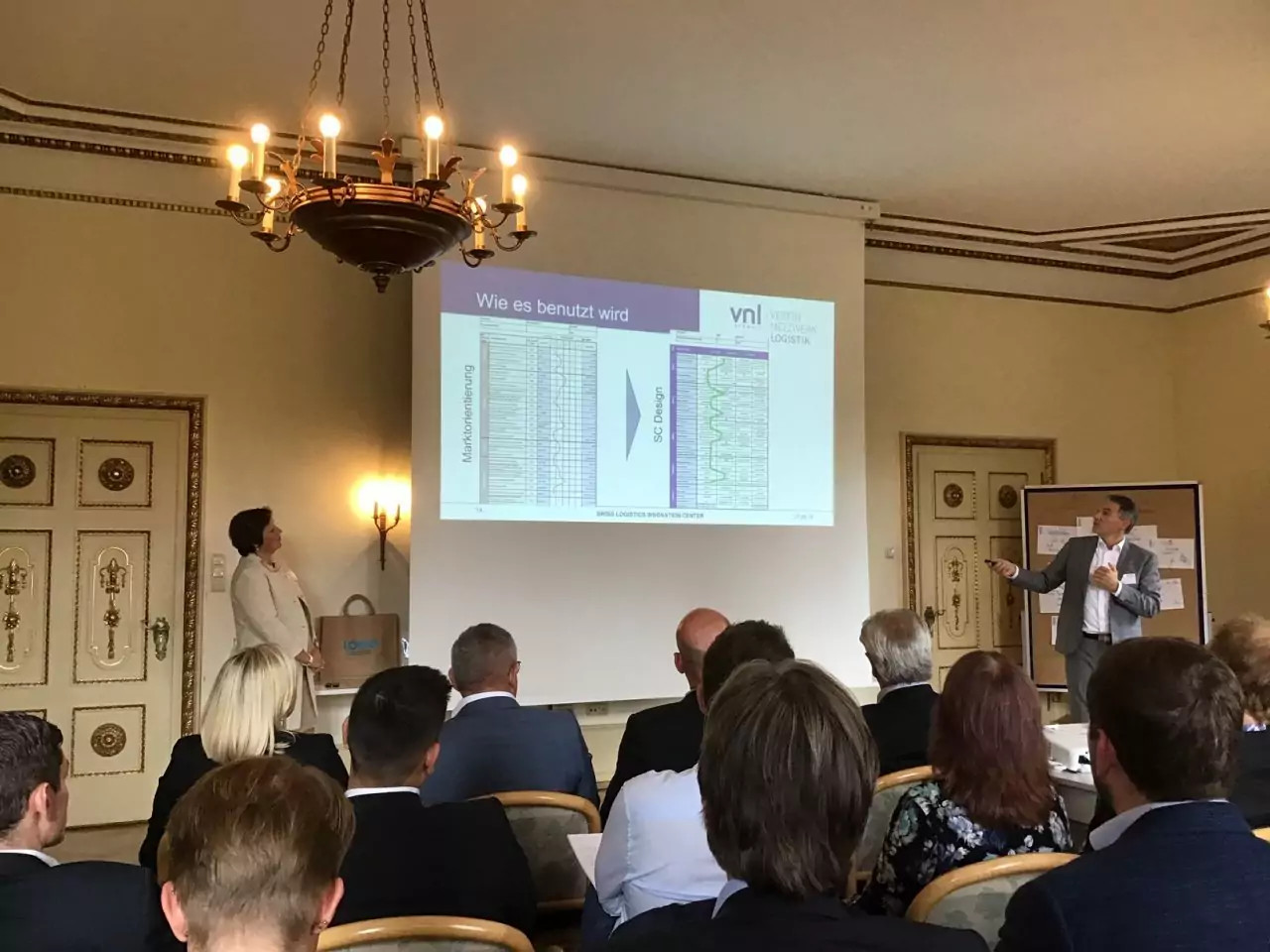
Vortrag Prof. Ruile Logistik CRM Summit 2019
LOGO consult has been a member of VNL Switzerland since this year and since our first meeting at Logistics and Distribution in Zurich in spring 2019, Herbert Ruile and I have been united by our thoughts on how knowledge of the customer and their individual needs should influence supply chain planning.
On the Swiss Logistics Innovation Day this year, we had already heard high-profile presentations that dealt heavily with prediction via Big Data. Impressive what Nestle, Migros and others have achieved through good predictions.
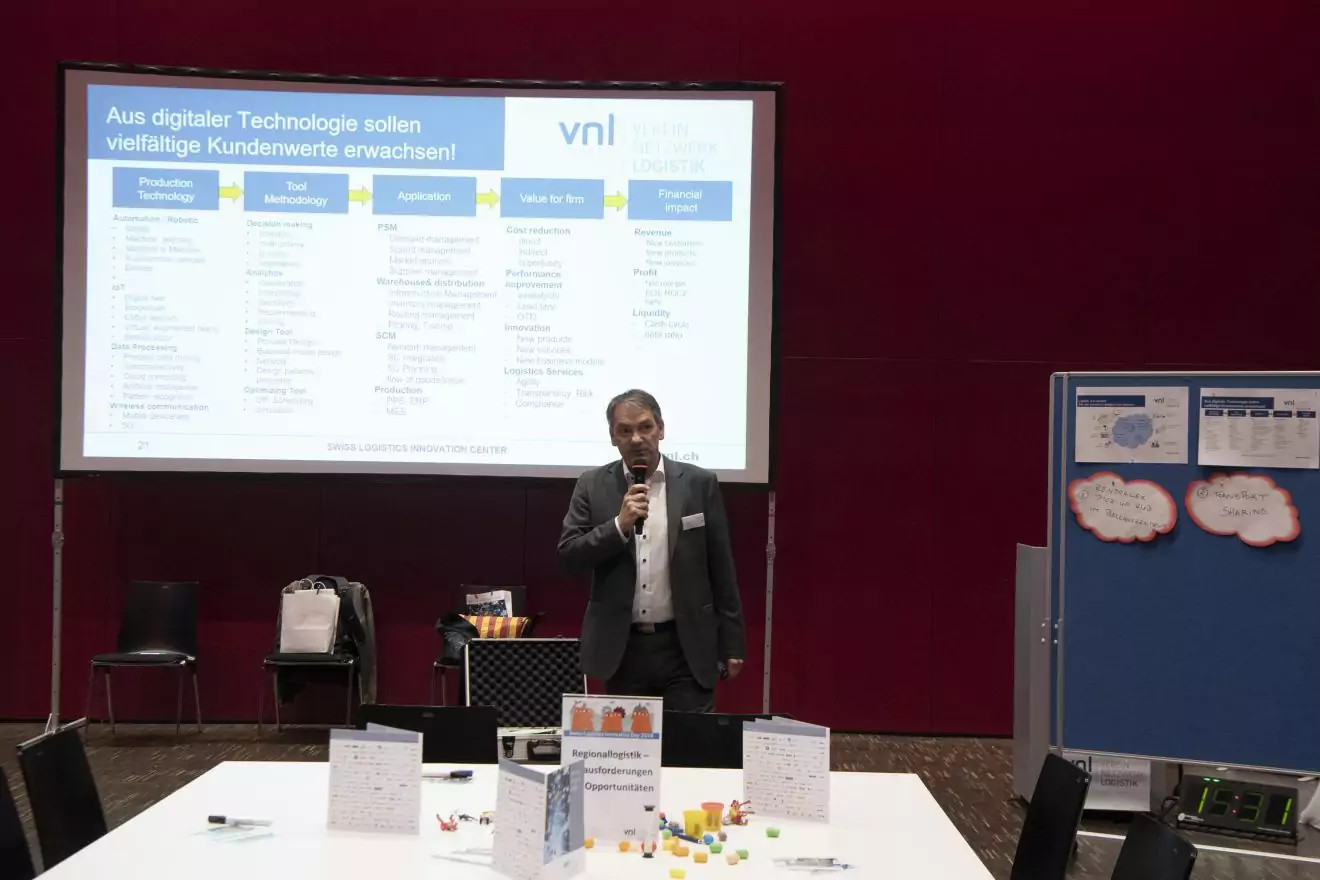
vnl Schweiz
Prediciton, Big Data and Soft Facts
In the course of the day, however, we kept asking ourselves where the information that the sales people have stored in the CRM can flow in. What about the potentials? What about soft facts?
From my point of view, this information also belongs in the planning.
The team around Herbert Ruile approached the market-oriented supply chain with a slightly different focus. In various examples, the speaker illustrates how companies have benefited from incorporating market and customer needs into their planning.
In the first lecture at this year’s Logistics CRM Summit 2019 we were led into the world of research and science by Professor Ruile.
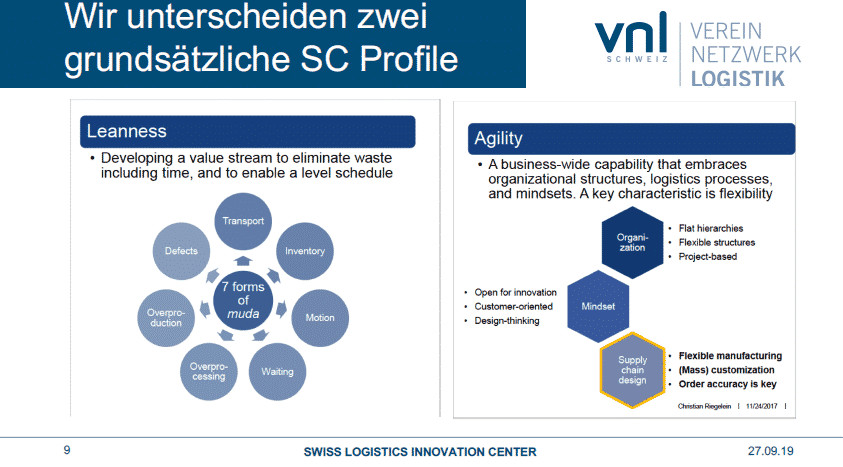
Universities have long been concerned with the workings of the supply chain and identifying the individual processes.
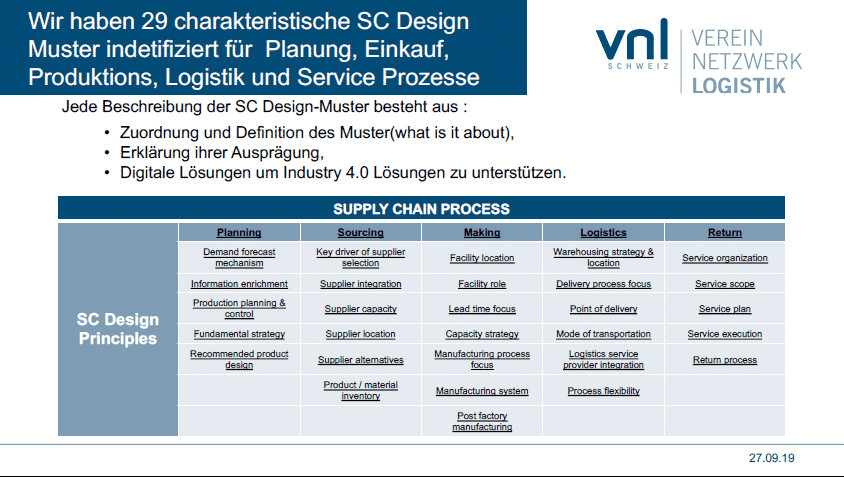
In recent years, “customer experience” and “customer centricity” have also become the focus of supply chain research.
Professor Ruile demonstrated how important it is for companies to recognise which of their supply chain processes are standardised and “lean” and which are adapted “agilely” according to the specific wishes of the customers. A matrix was presented to define the processes at each customer. Using the peaks in the resulting graph, it is easy to see where there are “outliers”. So the company checks whether the process at this customer is mainly standardised and has few or no deviations towards agility. Or do you have a process that is almost completely aligned with the customer and only conforms to the standard in a few places?
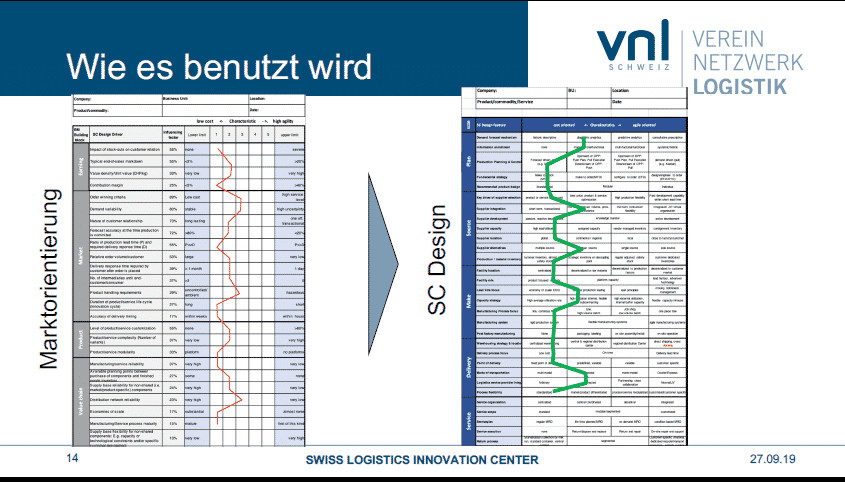
Being aware of the differences provides crucial clarity not only in terms of the processes themselves, but also in terms of pricing. In a discussion with the customer, the customer-specific processes can be pointed out. Then the understanding can be awakened that these special processes also have their price. And it is precisely these that set the service provider apart from others who ONLY offer standard processes.
If companies have precise evaluation options for their customer requirements in the supply chain, they are in a position to develop and present customised solutions.
In this way, they use their competitive advantage and can explain to their long-standing customers why they receive customised solutions at a fair price from them.
Overall, the company’s understanding of the customer increases considerably and the customer recognises the customer-centred actions of the service provider. The result is customer centricity and a good customer experience.
Talk to one of the experienced LOGO consultants about how you can better adapt your supply chain to your customers’ requirements and how your company can benefit from LOGO CRM. Secure your appointment for your individual LOGO webinar.
